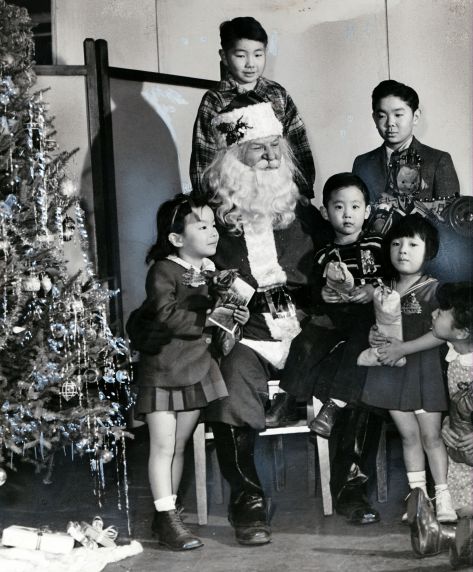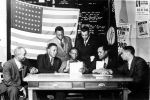Blogs
The Michigan Black History Bibliography Index: An Invaluable Resource
In the mid 1970s, the Walter Reuther Library produced an invaluable source of information for numerous researchers that have walked through its doors - the Michigan Black History Bibliography Index. The index contains a wealth of information that does not exist anywhere else, providing researchers with connections to unique and often obscure sources. With this blog, a wider audience will become aware of its existence and value. The index is a four-drawer card file identifying sources that are key to understanding Black history in Michigan, and its hundreds of bibliographic references span from the 19th Century until the mid 1970s. read more »
NHPRC Oral History Project: An Update from the (Wave) Field
In 2014 the National Historical Publications and Records Commission awarded the Walter P. Reuther Library its two-year Documenting Democracy grant to enhance access to the library's oral history collections, thus enabling my hiring. As Oral History Project Archivist, I’m lucky enough to get to “unearth” some of the great treasures of our collections. Thanks to the grant, I am arranging and describing more than 1,600 previously undescribed or “under-described” oral histories in our collections. read more »
Collections Spotlight: Mel Ravitz Papers
The Reuther Library is proud to announce the opening of an addition to our Mel Ravitz Papers. The new materials include documents related to Ravitz’s work and research in urban planning and its impact on communities, ranging from 1945-2009. Notably, the collection includes some of Mr. Ravitz’s personal journals from the early 1960s. The addition to this collection may prove particularly valuable to researchers with an interest in the causes and effects of Detroit’s 1967 civil unrest. read more »
Hidden Gems: Holidays in the Folklore Archive
 Winter is the time for the celebration of holidays and festivals in many ethnic and religious groups around the world, from the Winter Solstice to Kwanzaa. Though the Reuther Library lacks any Druid collections that shed light on prehistoric winter rites, it is the home of a relevant “hidden gem” collection: the Folklore Archive. The holiday information in this collection is wide-ranging, enlightening and sometimes amusing.
Winter is the time for the celebration of holidays and festivals in many ethnic and religious groups around the world, from the Winter Solstice to Kwanzaa. Though the Reuther Library lacks any Druid collections that shed light on prehistoric winter rites, it is the home of a relevant “hidden gem” collection: the Folklore Archive. The holiday information in this collection is wide-ranging, enlightening and sometimes amusing.
The Folklore Archive, established in 1939, contains the oldest and largest record of urban folk traditions in the United States. At its core are thousands of student field research projects from Wayne University (later Wayne State) classes. read more »



